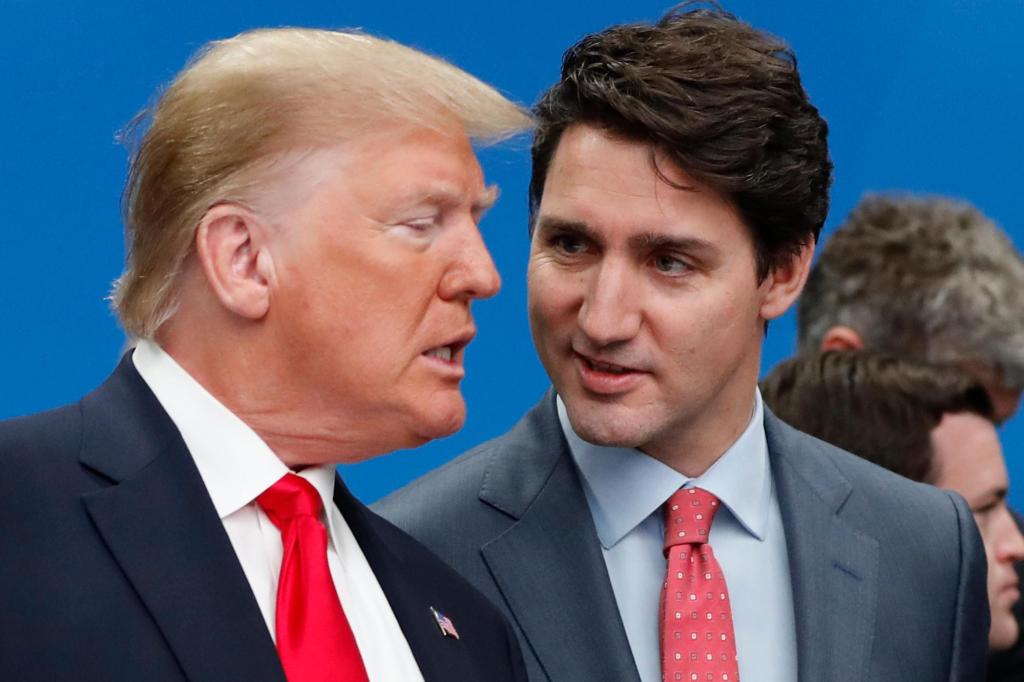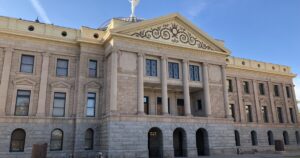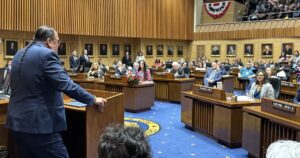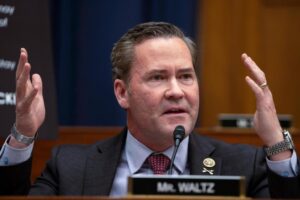
Canadian Ministers Head to Florida for Crucial Talks on Trade and Security
Amid escalating tensions over proposed tariffs, two prominent Canadian Cabinet ministers are set to meet with representatives of the incoming Trump administration to discuss vital issues concerning border security and trade. The discussions are scheduled to take place in Palm Beach, Florida, against the backdrop of President Trump’s threats to impose tariffs on Canadian goods.
Finance Minister Dominic LeBlanc and Foreign Minister Mélanie Joly will engage in talks this Thursday, as confirmed by Jean-Sébastien Comeau, a spokesman for Minister LeBlanc. This meeting follows LeBlanc’s previous announcement of his intent to meet with Tom Homan, soon to be the U.S. “border czar,” to address Canada’s comprehensive border security plan aimed at mitigating potential tariffs.
According to Comeau, the ministers aim to advance discussions initiated during a recent meeting between Canadian Prime Minister Justin Trudeau and President Trump at Mar-a-Lago. They also plan to revisit the topics covered in their earlier conversation with Tom Homan. Comeau stated, “The Ministers intend to focus on Canada’s efforts to combat fentanyl trafficking and illegal migration and the measures outlined in Canada’s Border Plan, as well as the negative impacts that the imposition of 25% tariffs on Canadian goods would have on both Canada and the United States.”
The Trump transition team has yet to comment on the upcoming talks. President Trump has repeatedly referred to Canadian Prime Minister Justin Trudeau as the “governor of the 51st state” and has warned of sweeping tariffs unless Canada curtails what he describes as a flow of migrants and drugs into the United States. However, statistics show that the numbers are significantly lower compared to those from Mexico.
In response to these developments, Canada has devised a billion-dollar strategy to enhance border security. Minister LeBlanc expressed optimism following his recent discussions with U.S. officials, acknowledging the substantial efforts needed to resolve the issues at hand.
President Trump has also focused on the U.S. trade deficit with Canada, mistakenly labeling it a subsidy. Canada’s Ambassador to Washington, Kirsten Hillman, clarified that the U.S. had a $75 billion trade deficit with Canada last year, noting that a significant portion of Canadian exports to the U.S. includes energy, which impacts the deficit when oil prices rise.
Canada remains a crucial economic partner for the United States, with approximately $3.6 billion Canadian dollars ($2.7 billion) in goods and services crossing the border daily. Canada is the leading export destination for 36 U.S. states, with significant portions of U.S. crude oil and electricity imports derived from Canadian sources.
Border activity varies significantly between the U.S.’s northern and southern borders. U.S. customs agents seized only 43 pounds of fentanyl at the Canadian border last year, compared to 21,100 pounds at the Mexican border. Most fentanyl in the U.S. is produced by Mexican cartels utilizing precursor chemicals smuggled from Asia, contributing to approximately 70,000 overdose deaths annually.
Regarding immigration, the U.S. Border Patrol recorded 1.53 million encounters with migrants at the border with Mexico between October 2023 and September 2024, in stark contrast to 23,721 encounters at the Canadian border during the same period.
Originally Published:






